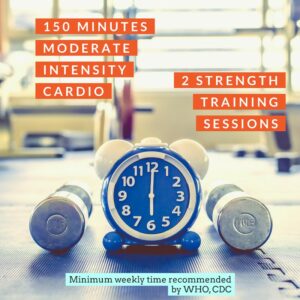Nate Wilkins was living the good life.
He was traveling a lot for work, as a parks and recreation administrator in Florida. He was eating out and indulging at business lunches and happy hours. Sure, he noticed he was packing on pounds, but he was busy — dealing with that would have to wait.
Then one day, it couldn’t wait any longer.
“I was at home, and I felt pain in my chest,” recalls Nate, now 69, of Miami. “I went to the emergency room, just to make sure I was OK – and they kept me in there for two weeks. I said, ‘Lord, if I ever get out of here, I’m going to change my life.’”
He did, and his heart health has returned. Now, a decade later, Nate’s 5’11” frame is down from 230 to a lean, muscular 185. He eats right, and no longer needs some medications he’d been using. He’s in a long-term relationship with a physical trainer. And he’s become a life coach and trainer, himself.
“I look good. I smell good. I talk good,” he says with a laugh. “I’m a lean, mean fighting machine.”
Everyone is different
Nate’s story took a happy turn. So can anyone’s, regardless of age or physical condition. Simply put, it’s never too late to improve your health. We have plenty of clients, colleagues and success stories to prove it, and we’re here to help.
Everyone’s an individual. And for people over 50, what makes you unique can include past injuries, health issues, or physical limitations. And that’s OK.
As Nate puts it, although he’s in great shape, “I’m not a bodybuilder.”
And he keeps that in mind when creating a workout plan for each client, just like we do at FCF.
“It depends on what each person actually needs.”
Balance, agility, strength and stamina are important to everyone’s health. And studies prove that adults can improve their health across the board by exercising, regardless of age.
He got his balance back
Don’t let a previous setback discourage you from doing what’s right to improve your health. Call us, and we’ll help answer any questions.
That’s true whether you’ve always been in perfect health, or if you’ve had a stroke or live with, say, Parkinson’s disease.
“It’s not a cookie-cutter model,” Nate says, and we agree. “Everybody’s an individual.”
The first step is making a decision to change.
Next, understand you’ve got to keep moving your body to stay healthy, Nate says.
Remember what’s important to you, and the kind of life you want to live.
For Nate, he felt he had lost his balance when he was “living the good life” and almost died from indulgence.
“If I can do this at 69 and feel like this, then I can encourage other people to do it, too,” he says. “It’s a progression they have to go through.
“It’s a mindset that you don’t have to be 69 years old. You get to be 69 years young.”
So if you’re ready give us a call or text at (657) 231-6207 and we’ll chat about your needs.

Exercise Tops Drugs, Therapy for Mental Health, Study Finds
A huge review of more than 1,000 studies has found that physical activity is more helpful in treating mental illness than therapy and drugs.
Researchers at the University of South Australia crunched data from studies involving more than 128,000 people and reported in the British Journal of Sports Medicine:
- Exercise has a big effect on mental health issues such as anxiety and depression – 1.5 times more effective than counseling and prescription medication, the university said.
- All activity methods were considered effective.
- Resistance exercise had the largest effects on depression, while yoga and other mind–body exercises were best at reducing anxiety.
- Moderate to intense exercise gives more impact than lower intensity.
- Programmed plans of 12 weeks showed a greater effect than exercising without a plan.
The World Health Organization says mental health issues affected 12.5% of the population globally before the Covid-19 pandemic. Experts agree that more people struggled during the crisis, which brought extra challenges for older people, often brought on by isolation and inactivity.
Now, this doesn’t mean that people should stop taking their medications or going to therapy! But it’s clear that good physical activity is good for our whole selves, including depression and anxiety.
“Our findings underscore the important role of physical activity in the management of mild-to-moderate symptoms of depression, anxiety and psychological distress,” the researchers wrote.
We’ve always known that moving your body makes you feel better in every way. Let’s show you how today!
Call or text us at (657) 231-6207


